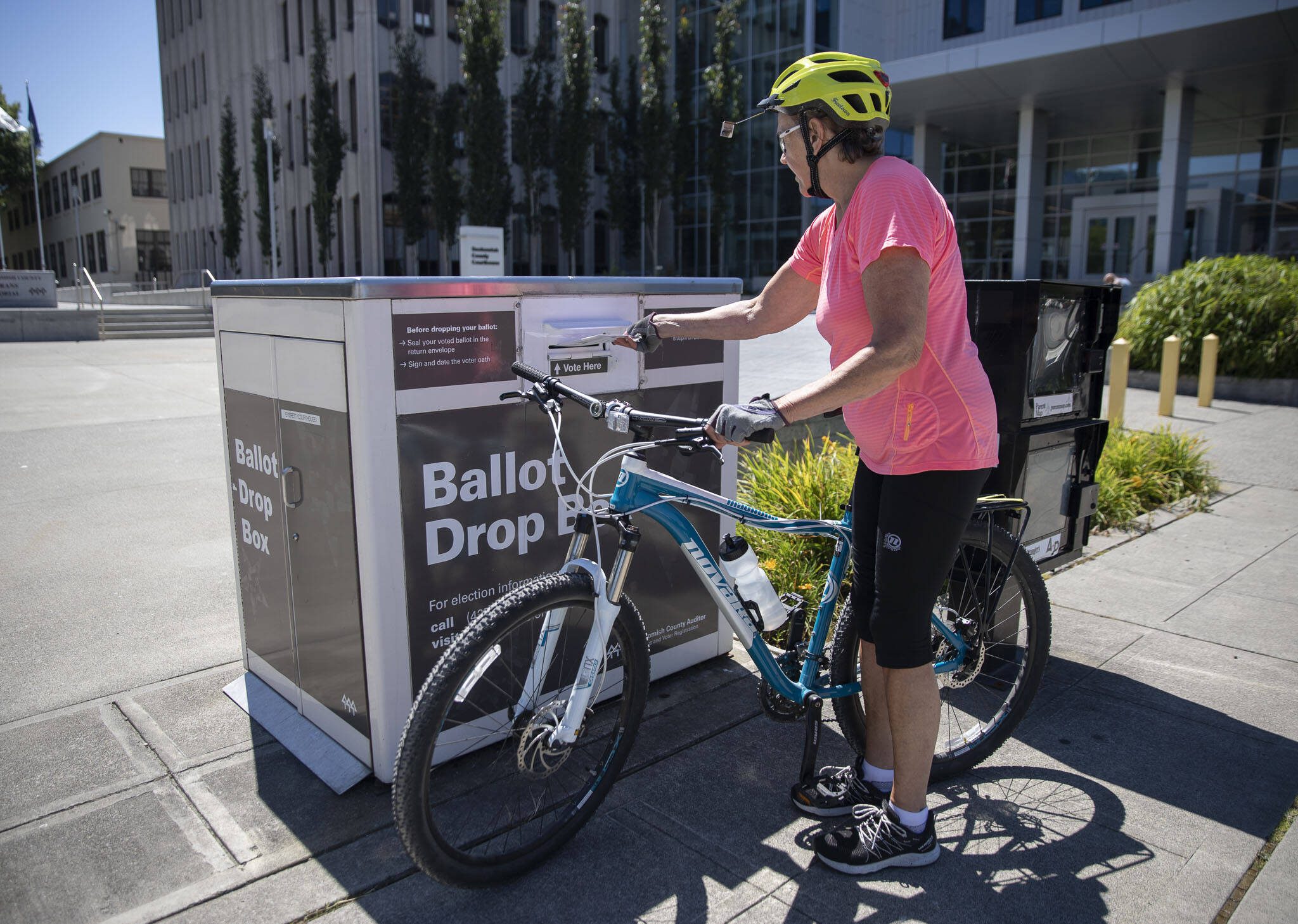EVERETT — For just over 18,000 voters in Snohomish County, it’s election day.
A rural Arlington fire district and the Lakewood School District are asking voters to approve levies they say are necessary to continue operating at current levels.
Fire District No. 21 serves under 9,000 people. The Lakewood School District has around 16,000 residents in its boundaries north of Marysville and southwest of Arlington.
Both are coming to voters after failing to pass propositions in past years.
The fire district’s attempts failed for three years straight. Lakewood’s most recent attempt to pass two levies in February failed by slim margins.
Ballots for the special election are due 8 p.m. Tuesday.
Lakewood School District
After a pair of levies failed two months ago, district officials have returned to voters one more time. This time, one proposition won’t raise taxes, while the other will.
The first ballot measure is a replacement levy for educational programs and operations. Approval of the levy would sustain the current tax rate of $1.73 per $1,000 of assessed property value, imposed by a levy originally approved in 2021.
That levy would allow the district to collect $31.5 million over four years.
Jahna Smith, Leaha Boser and Corey Wenzel wrote in the voters’ pamphlet that without approval of the levy, the school district could lose sports, security, drama, band, health providers and more. Smith and Boser are former school board directors for Lakewood and Wenzel is a paramedic with Snohomish Regional Fire and Rescue.
More than $10 million of the levy money would go to teaching and support, with the rest routed to athletics and activities, technology and operations, special education and professional development.
The second proposition on the ballot is to establish a new levy for capital investments and safety. The school district would use the cash to replace aging boilers, electrical panels, HVAC and fire alarms while improving security with cameras and fencing. That levy would increase property taxes for residents.
“We cannot afford to defer maintenance,” Smith, Boser and Wenzel wrote. “Putting off repairs and updates now will cost more in the long run while compromising learning conditions and safety concerns now.”
The new levy would collect $17 million over four years. If it passes, the rate would start at 87 cents per $1,000 of property value in 2025, climbing to 99 cents per $1,000 by 2028. For the average home with a property value of $500,000, the capital improvements levy would increase property taxes by $435 in 2025.
Jeff Heckathorn, who penned an argument against the two levies on the local voters’ pamphlet, believes tax measures should be proposed in November, when turnout is much higher.
Even as the replacement levy won’t raise taxes for property owners, Heckathorn opposes it.
“If anything, these Enrichment Levies are supposed to go toward student enrichment programs only — not staff salary enrichment,” he wrote in the voters’ pamphlet.
Fire District No. 21
Voters in rural Arlington will vote on a proposition from Fire District No. 21, to raise the levy rate on property taxes to $1.40 per $1,000 of assessed value.
The last levy voters approved was in 2018. That brought the levy rate up to $1.30 per $1,000 of assessed value. Over the five years since it passed, its dropped down to $0.92 per $1,000, due to the statutory 1% limit on property tax increases.
The maximum regular levy rate for Washington fire districts is $1.50 per $1,000 of assessed property value, just 10 cents more than the district’s proposal.
Previous levies failed in 2021, 2022 and 2023.
This time around, the department is “desperate for adequate staffing,” according to the argument in favor of the levy in the voters’ pamphlet, authored by Michael Lloyd and Laura Hofman.
“We are concerned if this does not pass it will cost the lives of our neighbors,” they wrote.
The fire district doesn’t have its own paramedics and the agency providing outsourced paramedics will end its services July 1. If the levy passes, the fire district will be able to hire its own team of paramedics. If it fails, the district could be without paramedics, according to the district.
No argument against the levy was submitted for the voters’ pamphlet before the deadline in February.
The vast majority of the calls the 70-square-mile district receives are for emergency medical services, according to its website.
Currently, the district amasses just over $2.6 million from a property tax and an emergency medical services tax, according to its 2024 adopted budget.
Jenelle Baumbach: 360-352-8623; jenelle.baumbach@heraldnet.com; Twitter: @jenelleclar.
Talk to us
> Give us your news tips.
> Send us a letter to the editor.
> More Herald contact information.

























